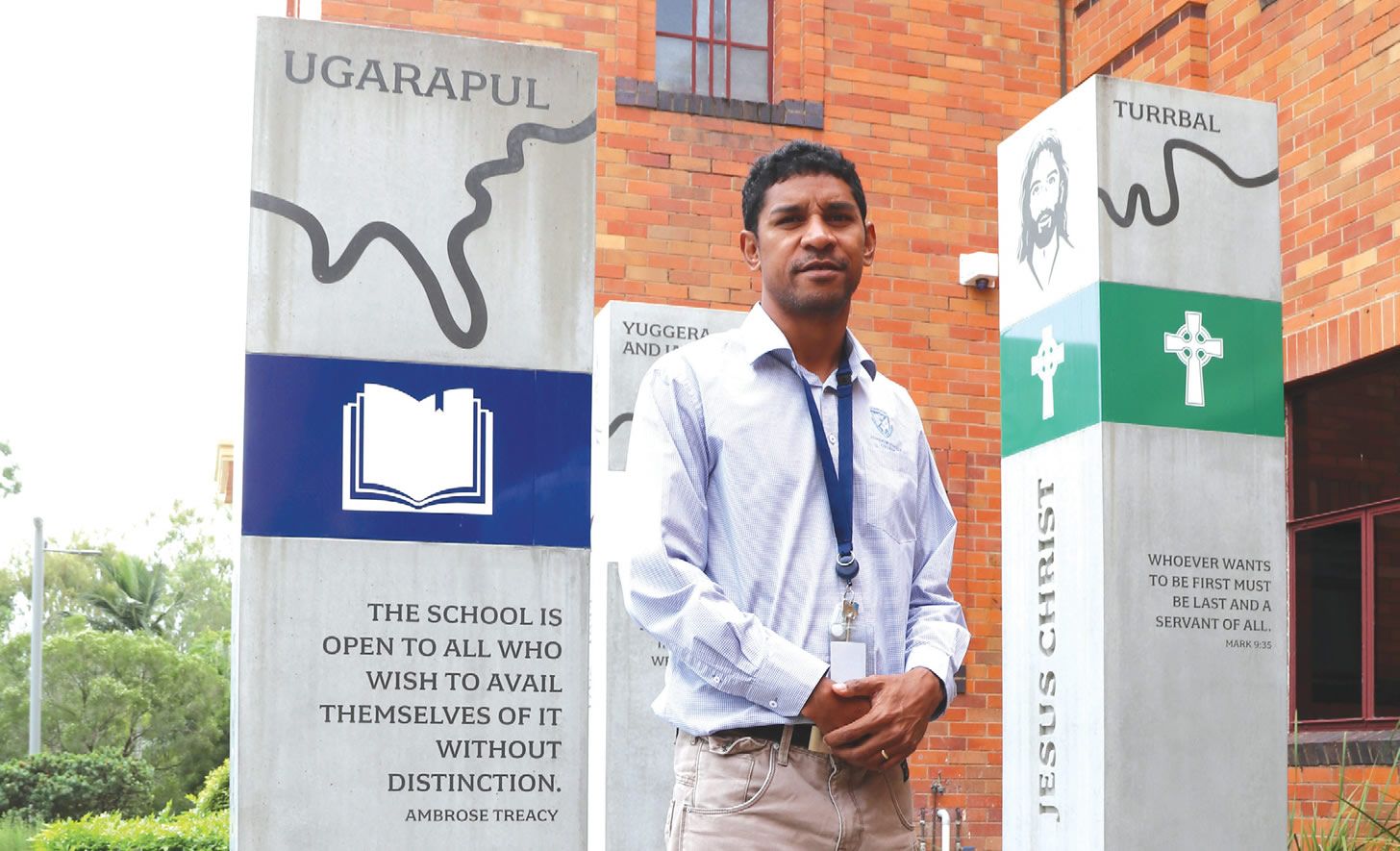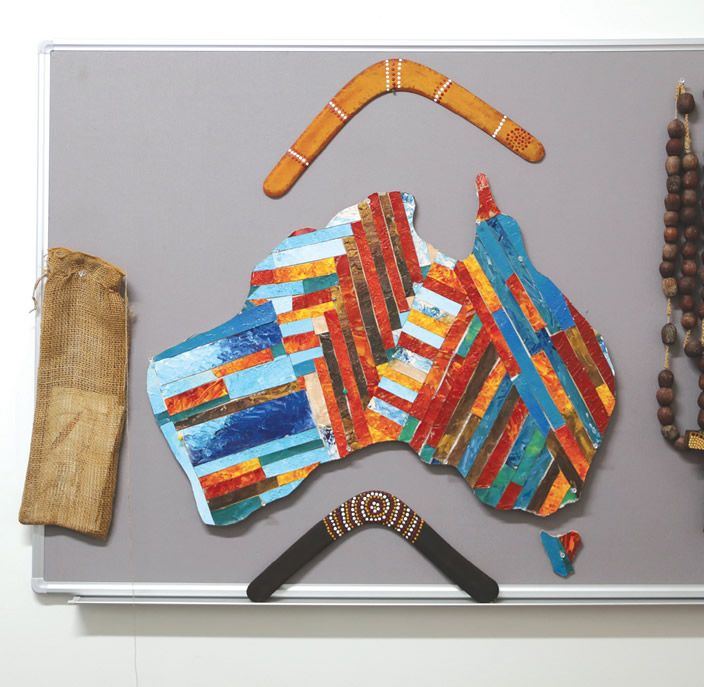Addressing needs on a school level
Creating change at a local level, Leone is currently working with his colleagues to establish a Reconciliation Action Plan (RAP) at the College.
“I am excited that this initiative can provide a coordinated plan to further complement the College’s stance on creating an inclusive environment for all, with a focus on its First Nations people.
“The seeds that are planted during this process will see future generations reaping the rewards,” Leone said.
To advise the school on student affairs, Leone established an Aboriginal and Torres Strait Islander Advisory Committee.
Leone also works closely with the College’s Counselling and Support Services team, Heads of House, Heads of Year, and various other departments and teaching staff throughout the College.
“Externally, I seek advice from family members and the Murri Ministry, and liaise with Catholic Education, Edmund Rice Education Australia (EREA) schools, colleagues and people from within the community that work in similar roles.”
By engaging such a wide variety of stakeholders in conversation around student welfare, Leone is able to work towards developing practical strategies to support students at the College.
Equipping employees
With schools increasingly realising the need to create dedicated positions for Aboriginal and Torres Strait Islander student support, an informed understanding of what staff members will need to carry out these duties is integral.
Some employees in newly established roles can find themselves reliant on personal connections and pre-established networks, and lack opportunities from their employer to extend their services or build on these networks.
There may also be a lack of resources available to these employees in terms of equipment, as well as time to collaborate with colleagues.
IEUA-QNT Research Officer Adele Schmidt said members who feel they are not being appropriately supported by their employer should contact our Union for advice.
“Especially prevalent in the case of newly established roles, employers may take a trial and error approach to see what in fact is needed by the employee in the specific role.
“But our Union can help empower employees to recognise these needs, and to let their employer know that in order for them to do the job they were hired to do, they need resources,” Schmidt said.
Community culture fosters support
Leone said there is more work to be done in the wider context of education to ensure student needs are met.
“The way to achieve student success is to increase avenues for parental and community participation.
“The more parents are able to engage with workers in positions of Aboriginal and Torres Strait Islander leadership, the more we will be able to support their children.
“Ensuring avenues exist for members of the Aboriginal and Torres Strait Islander community to play a part in school communities is a work in progress.
“It will take more work to build on the existing processes that are currently in place – but I am hopeful for the future and can’t wait to see how the Aboriginal and Torres Strait Islander space in education develops over the years.”
Leone said he feels it is important for him to make a conscious effort to seek advice from others, as being the only Aboriginal or Torres Strait Islander employee in the workplace can feel isolating.
“I hope the future holds more opportunities and greater access for Aboriginal and Torres Strait Islander people to engage in school communities via employment, and in the education profession more broadly.
“Without the insight of Aboriginal and Torres Strait Islander people, approaches to supporting Aboriginal and Torres Strait Islander students will be ineffective.”
As a new member of the Union, Leone said he is encouraged to see the existing support for Aboriginal and Torres Strait Islander issues within the union movement.
“Knowing that there is ongoing support and representation of the Aboriginal and Torres Strait Islander workforce within the IEUA encourages me and allows for me to feel culturally safe,” Leone said.
Connecting with colleagues
IEUA-QNT’s Yarning Up sessions provide Aboriginal and Torres Strait Islander members with the opportunity to build connections across the wider education community.
Teachers, school officers and support staff are welcome to attend the events.
To learn more about Yarning Up, get meeting dates or to register your interest in joining, email enquiries@qieu.asn.au or call 1800 177 938.









































































































































